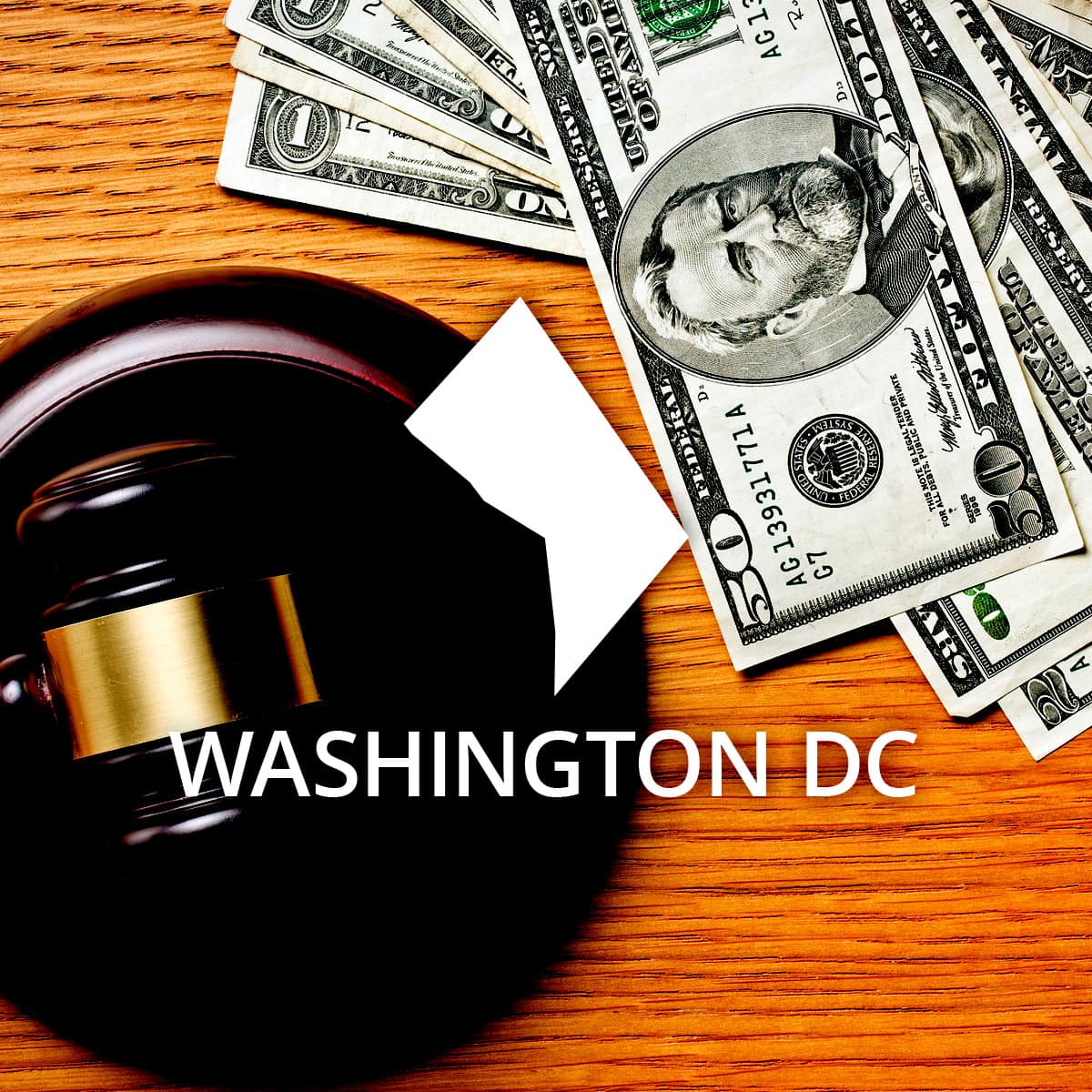 Multiple Bankruptcies: How Often You Can File One?
Multiple Bankruptcies: How Often You Can File One?
Table of Contents
 How to File Bankruptcy in Washington, D.C.
How to File Bankruptcy in Washington, D.C.
 The U.S. Bankruptcy Court of the District of Columbia has only one location in Washington D.C. Bankruptcy is a matter of federal court and is governed by federal laws, and these courts are separate from state and local courts. Filing bankruptcy may be an optionfor someone in dire financial straits, but it is highly recommended to seek the advice of legal counsel to navigate the federal court system. Individuals can also file without an attorney, or pro se, using official documents provided online and at the court location. If you cannot afford an attorney, you may approach the American Bar Associationto search for a local attorney who will advise you on your case for reduced rates or provide a free consultation.
The U.S. Bankruptcy Court of the District of Columbia has only one location in Washington D.C. Bankruptcy is a matter of federal court and is governed by federal laws, and these courts are separate from state and local courts. Filing bankruptcy may be an optionfor someone in dire financial straits, but it is highly recommended to seek the advice of legal counsel to navigate the federal court system. Individuals can also file without an attorney, or pro se, using official documents provided online and at the court location. If you cannot afford an attorney, you may approach the American Bar Associationto search for a local attorney who will advise you on your case for reduced rates or provide a free consultation.
 Types of Bankruptcies and Terms
Types of Bankruptcies and Terms
There are four main types of bankruptcies: Chapter 7, 13, 11 and 12. Chapter 7 allows individuals to liquidate their possessions in order to pay back outstanding debts. If a debt is unsecured by real property, it may be discharged in Chapter 7. However, some debts like taxes owed and student loans are unable to be discharged.
Chapter 13 bankruptcy is for individuals who wish to reorganize their debts and maintain ownership of their real property. If they simply cannot afford the payments as they are, Chapter 13 can help them come to an agreement with creditors to lower payment amounts and terms. This type of bankruptcy allows them to keep property such as cars and houses.
Businesses who want to reorganize outstanding debts but remain in business may file for Chapter 11 bankruptcy. Chapter 12 bankruptcyis reserved for professional fishermen and farmers.
 Steps to Filing Bankruptcy in DC
Steps to Filing Bankruptcy in DC
Anyone wishing to file for bankruptcy must first attend an approved credit counseling course within 180 days prior to filing. The local bankruptcy court can provide a list of these vendors.
The court also requires fees to be paid upon initial bankruptcy filings, which is a few hundred dollars for Chapter 7 or 13, and $1500 or more for Chapter 11. Chapter 7 filers can submit a request for fee waivers or a reduced payment plan. If payment arrangements are not made, the court may dismiss the case.
In order for the court to approve a Chapter 7 filing, the debtor must complete a means test to prove their debts cannot be paid based on their current income. Multiple documents such as tax returns, W-2s, balance sheets, proof of identity, all financial records and details of outstanding debts and creditors must also be submitted to the court. The case may be dismissed if these are not provided by a specified deadline.
A meeting of creditors is then scheduled with a court-appointed trustee. If the debtor fails to attend the meeting, the case may be dismissed and creditors can continue with collection efforts. This meeting allows creditors and debtors to negotiate lower payments and debt levels, and determine which if any debts can be discharged. The schedule that is agreed upon is then submitted to the court for approval.
Finally, debtors must attend an approved financial management course before the court will discharge the bankruptcy. Bankruptcies can greatly affect credit ratings and will remain on credit reports for up to 10 years.
Official bankruptcy forms for the U.S. Bankruptcy Courts are available at www.uscourts.gov/forms/bankruptcy-forms or RecordsFinder's Court Forms Section.
 DC Bankruptcy Court Location
DC Bankruptcy Court Location
The U.S. Bankruptcy Court District of Columbia has a physical location at 333 Constitution Avenue N.W., Washington, DC 20001 in room 1225. The clerk may be contacted at (202)354-3280, and the court is open Monday through Friday from 9 a.m. – 4 p.m.




